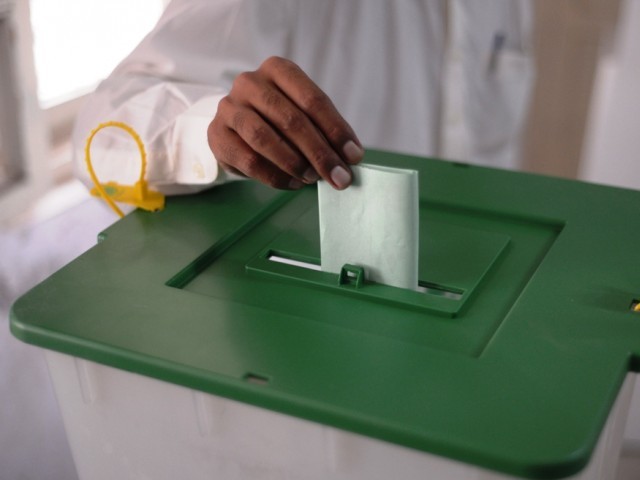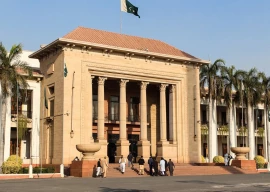
A secret letter from the Election Commission of Pakistan (ECP) asking its returning officers (ROs) to overlook an election rule has helped many leading aspirants qualify for the March 5 Senate polls, putting a question mark on the validity of the scrutiny process.
Sources told The Express Tribune that the ECP wrote the letter to its ROs, asking them to overlook Section 20 of Electoral Rolls Act 1974, which bars transfer of vote from one constituency to another once the election schedule is announced. A copy of the letter is available with The Express Tribune.
Section 20 reads: “No revision or correction of any electoral roll for an electoral area shall be made nor shall any order under Section 19 be made in respect of any electoral roll at any time after the constituency of which such electoral area forms part has been called upon to elect its representative and before such representative has been elected.”
It makes it clear that once the schedule is announced the voters list is frozen.

However, a secret communiqué was sent to the ROs after the ECP announced the schedule for the Senate elections. This purported communication helped many leading aspirants, who were not resident of the province from where they were nominated to contest, qualify for the polls. Due to the criticism over the conduct of the lower court judges as the ROs in the 2013 general elections, the ECP appointed its senior officers as ROs for the scrutiny of Senate candidates.
The ECP also availed the services of around 11 bodies – including banking, tax and utility service providing authorities – to provide feedback to its ROs before they can judge the credentials of every candidate.
But still questions are being raised on the quality of scrutiny ECP’s high-ups have conducted.
Out of 184 candidates, who had filed their nomination papers for the Senate polls, the ROs declared 144 eligible to contest. The axe of scrutiny fell on independent candidates.
Except for a couple of candidates having tickets of the mainstream political parties, an overwhelming majority of the candidates whose nomination papers have been rejected are independents – 23 of them from the Federally Administered Tribal Areas only.

A glaring example of alleged anomaly is an RO’s decision to clear two key contenders of ruling PML-N contesting from Islamabad – Rahila Magsi for a women’s seat and Iqbal Zafar Jhagra for a general seat. Not only both the candidates are non-residents of Islamabad but they were also not registered as voters in the capital.
Similarly, many candidates contesting from Punjab and Sindh were not registered as voters in these provinces before the ECP announced the Senate polls schedule on January 19 and they managed to shift their votes after they were awarded party tickets just days before the two-day scrutiny process that concluded on Friday.
Contrary to National Assembly elections where a person registered as voter anywhere in the country can contest from any constituency across country, a person contesting for a Senate seat must be registered as a voter in the province from where he/she is contesting.
This provision is in line with the spirit of the Constitution, which stipulates that people of every federating unit can have equal representation in the Senate, known as upper house of parliament.
Pakistan Peoples Party’s (PPP) Nargis Faiz Malik challenged the credentials of Magsi on these grounds but the ECP’s acting secretary Sher Afgan – who was acting as the RO for the two Islamabad seats – set aside her assertions in his written order. Sher Afgan, in his controversial decision, wrote that section 20 of electoral rolls law would not apply for upcoming Senate elections.
Malik told The Express Tribune that she would go to higher forums against the decision.
She accused that the RO gave the decision under pressure as according to her four MNAs of ruling PML-N remained in his office till the decision was handed over.
Interestingly, if any one sends the CNIC numbers of all such candidates, who have been cleared by the ROs, in a text message to 8300 – the ECP’s service to help voters locate their vote – their votes are still registered in their native provinces.
Under Section 19 of the Act, in case of very special circumstances it is the chief election commissioner (CEC), who can allow changes in the electoral rolls after schedule is issued and voters list is frozen.
But these powers are limited in cases where there is any gross error or irregularity in the electoral rolls for any electoral area or part of it.
Published in The Express Tribune, February 22nd, 2015.

















COMMENTS (7)
Comments are moderated and generally will be posted if they are on-topic and not abusive.
For more information, please see our Comments FAQ